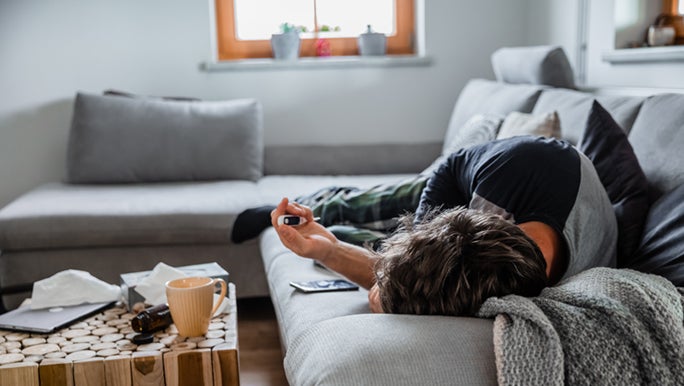Sex isn’t an easy topic to talk about for many people, but it’s an important one.
The term ‘sex drive’ or ‘libido’ refers to your physical interest in sex. And before you look at how to improve your libido, you need to understand where your sex drive comes from, and what normal actually looks like for you. Not everyone has a highly active sex life all the time!
To understand the topic a bit better, we asked Naturopath Jess Milford what a normal sex drive is.
Her reply might surprise you. “There's really no such thing as a ‘normal’ libido,” she told us. “Your sex drive comes from your hormones, and everybody has a unique combination of those. If your levels of oestrogen, progesterone or testosterone are too low or too high, it will usually impact your libido.”
How do you know if your sex drive is normal?
Jess went on to say that the best way to understand your libido is to deliberately tune into your body. Don’t just pay attention to your mind. If you’re mentally keen but your body isn’t responding the way you’d like it to, there could be a problem worth investigating.
“It's really important to understand what your normal libido is, so you can identify whether there are any fluctuations – either higher or lower. It’s very normal for different people to have different baselines.”

“Not surprisingly, suffering from illness or stress will lower your libido.” says Jess.
The most common causes of decreased libido
Figuring out what’s causing low libido can be tricky. Jess recommends first looking at your sleep, stress levels and exercise habits.
“Regular exercise combined with quality rest are the best contributors to a higher sex drive. Optimal health puts your sex drive at its peak. Not surprisingly, suffering from illness or stress will lower your libido.”
Common reasons for low sex drive (in everyone – men, women and non-binary people) include:
- fatigue
- medications
- anxiety or low mood
- painful sex
- problems with arousal
- chronic illness or disease
- low self-esteem
- high stress levels
- past negative sexual experiences
- relationship conflict
- poor body image
- too little or too much exercise
Jess adds that other causes of low sex drive in women can include contraceptive medication, pregnancy, breastfeeding and menopause.
In short, there are several potential causes of decreased libido. So it’s worth looking at your overall physical health, sexual health, lifestyle and relationships to figure out why your libido may be low and how to improve it.
Simple ways to boost your libido
Practise mindfulness
We all lead busy lives, which can start to take its toll on our bodies. Jess suggests making time for mindfulness – the practice of focussing on what’s happening now – to help calm your nervous system. This can improve mental health, which may, in turn, improve your libido.
“Even if it's just five minutes, twice a day, sit with your eyes closed and just concentrate on breathing in and out. You can also try a rhythmic breathing pattern, such as inhaling for a count of four, holding for four and then exhaling for four.”
Eat a healthy diet
A nutritious wholefood diet can also help to balance your hormones. Start by reducing the number of highly processed foods you eat, and bring better foods into your diet instead.
Jess also recommends monitoring how much water you’re drinking. Dehydration is a common cause of headaches – an instant mood killer.

Jess suggests making time for mindfulness - practice what’s happening now to help your nervous system.
When to consult a practitioner about your sex drive
If you’ve tried changing your lifestyle but still feel like your libido’s too low, you should consider consulting a professional. You may need to get a naturopath or GP to check your hormones which also affect your sex drive and moods.
Or, if you think the problem is more about what’s in your head, consider speaking to a sex therapist.
Either way, don’t be afraid to reach out for help.
You deserve a libido you’re happy with
Struggling with low libido can reduce your overall happiness. That’s because sexual connection is part of a positive relationship for many people. Physical touch, after all, is one of the five love languages.
And positive relationships are important for our health – in fact, they’re one of our basic human needs. So if you’re not happy with your libido, it’s important to figure out why, and (where possible) prioritise making changes to improve it.
Related:
Jessica Milroy is a Naturopath who combines evidence-based functional medicine with a range of complementary therapies and lifestyle supportive strategies to find and treat the root cause of an illness, empowering her clients to be well in the process.
Reviewed by the healthylife Advisory Board June 2021


